A clear-eyed assessment of current attacks against organized labor reveal that the “right”—the Republican Party and its electoral, financial, and ideological supporters—is not the exclusive source of labor’s problem. This is certainly the case in the public sector. School teachers throughout the nation, for instance, are currently facing numerous challenges from politicians, and Democrats have been especially problematic. President Obama’s race to the top policy, Mayor Rahm Emanuel’s arrogant and unforgiving drive to close dozens of public schools in Chicago, and the widespread promotion and celebration of anti-union charter schools and accountability schemes by many Democrats demonstrates that powerful individuals from the center-left share some of the blame for the present assaults on labor.
Obama, Emanuel, and the spokespersons for the profitable charter school companies present themselves as forward-thinking reformers who seek to champion the interests of children and families over the supposedly more narrow concerns of teachers’ unions. We can also point to examples of anti-union activities on the part of “progressive” managers in the private sector. While a number of scholars have deepened our understanding of the high level of exploitation and intimidation experienced by Wal-Mart workers, we do not need to look far to find evidence of worker abuse and union-busting at some of the nation’s more civilized workplaces, including Costco and Whole Foods. Indeed, managers at these companies, including individuals who have strongly endorsed Democratic Party politicians, have repeatedly demonstrated a mastery of the craft of union-avoidance. In 2009, both Costco and Whole Foods lobbied against the Employee Free Choice Act (EFCA).
Union supporters have faced a long history of challenges from moderates and liberals, not only conservatives. This was certainly true in the late nineteenth and early twentieth centuries, when employers, citizens’ and civic associations–organizations that shaped the direction of the first-wave open-shop movement—took off, presenting themselves as “progressive” problem-solvers of the “labor problem.” Flying the open-shop banner high, employers successfully established organizations with well-known reformers. They often employed liberal language during the course of their conflicts. In the face of intense labor unrest, much of which was caused by labor activists who demanded closed-shops (shops that require employers to hire union members only), employers imported strikebreakers, dispatching guards, and sought injunctions. Such repressive actions, employers held, were necessary to reestablish managerial control and industrial peace. Employers frequently claimed that they fought “defensively,” insisting that the employer must enjoy “the right to manage” and that the non-unionist must enjoy “the right to work.”

But they also recognized that labor-management conflicts concerned large numbers of Americans outside of industrial relations settings. As open-shopper David M. Parry explained in 1904, “Those who have given any thought to the labor question must see that it is a very inadequate statement to make that it is merely a controversy between employers and employes.” And indeed, strike-exhausted employers took the lead in establishing hundreds of citizens’ associations. Writing in 1907, open-shopper James Van Cleave insisted that a range of law-abiding Americans needed to do something about the “labor problem” because “Social discontent and industrial strife are the enemies of good citizenship and progress.”
How should we define the principle open-shop organizations? Writing in 1922, historian Clarence Bonnett referred to those in vanguard of the open-shop movement–the National Metal Trades Association (NMTA), the National Founders’ Association (NFA), the National Erectors’ Association (NEA), the National Association of Manufacturers (NAM) and the Citizens Industrial Association of America (CIAA)–as “belligerent.” This label is appropriate in some contexts, but not in all. Members of these associations undoubtedly fought unions with an impressive arsenal, but they did much more than fight. Sure, members often used provocative words, denouncing the “labor trusts” as “tyrannical” and “regressive,” but they also employed more conciliatory language and usually offered at least some benefits to their employees. Groups like the CIAA, which was led by employers but also included clergymen, lawyers, academics, non-union workers, and various reformers in its ranks, sought to promote, in President Parry’s words, “the common good” while promising to defend “the common people,” rather than one narrow class.
The movement’s leaders actually spread a message of progressive reform, which meant the further establishment of open-shop workplaces. To build public support for the open-shop principle, both within and outside of workplaces, organizations like the CIAA formed numerous subgroups, including the three-person “press committee.”

The committee’s most famous member was a 27-year-old Kansas City newspaperman named George Creel. The precise role that Creel played in the CIAA’s information-dissemination campaigns is unclear (such organizations were very secretive), but historians have pointed out that open-shop activists distributed hundreds of thousands of pamphlets and books to teachers, students, professors, university administrators, judges, religious leaders, fellow employers and workers. The association’s public relations work was one of the movement’s most important activities, and it is noteworthy that more than a decade before Creel helped Woodrow Wilson “make the world safe for democracy” using these methods, he had played a part in both influencing and disseminating the CIAA’s progressive-sounding messages. Of course, as a supporter of women’s rights, police reform, public control of utilities, and strong child labor laws, Creel must not be defined solely as a union-busting propagandist, and he hardly fits the image of a cold-hearted capitalist. Yet like many other urban-based bourgeois reformers, he held that the open-shop principle was fair, progressive, and as an expression of the “common good.”
Did the “common good” mean the elimination of labor unions? Privately, many employers and their supporters may have desired such an outcome, but their public statements, including those from the CIAA’s foundational meetings in 1903, suggest otherwise. At its first gathering, the group passed a resolution supporting “the free right of workmen to combine.” Reinforcing the resolution, open-shop advocate F. C. Nunemacher, who began the confrontational and messy process of abolishing the closed-shop at his Louisville-based print shop in 1896, maintained, “I would wage no war to destroy the labor union. I recognize their right to organize for their advancement and the betterment of their condition.” And not long after helping to break a major strike in 1903, a NMTA leader, Henry C. Hunter, called unions “the logical outcome of our present society. They have accomplished magnificent victories for the betterment and happiness of mankind.” This was the language of liberalism.

Yet the pro-union rhetoric articulated by members of “belligerent” employers’ associations was coupled with recommended restrictions on union power. As the liberal-minded Nunemacher put it, unions “must deal fairly with their fellow-workmen who do not think it to their best interests to join a labor organization of any kind, and under all circumstances the union must keep within the law.” Sharing this view, William H. Pfahler, who held leadership positions in the NMTA, NFA, NAM, and the National Civic Federation (NCF) simultaneously, insisted in early 1903 that the job-hunter, irrespective of union status, must be “free to seek employment wherever and under whatsoever conditions he may prefer.” In other words, protecting the non-unionists’ “right to work”—heartily endorsed by employers, judges, university presidents like NCF member Charles Eliot and Woodrow Wilson, politicians like Theodore Roosevelt, muckrakers like Ray Stannard Baker, attorney Louis D. Brandeis, and liberal Protestant Washington Gladden—was part of maintaining “the common good.” With this guiding framework, many claimed to be both pro-union and pro-open-shop.
Some of the nation’s best known union-busters also made liberal-sounding comments as they discussed ways of ensuring “the common good” for employees. For instance, C. W. Post, a millionaire and leader of both the CIAA and NAM, maintained in a 1904 edition of the National Civic Federation Review* that American employers could not afford an eight-hour day. However, Post hoped that he would eventually “see the day when under the hour system, or some other practical plan, wage earners will not be compelled to labor over eight hours per day. To restrict a man’s energies by force or to compel him to labor beyond a reasonable time seems un-American.” Post’s words here, highlighting what he believed was the “un-American” burden of excessive workplace hours, hardly seems like an example of employer belligerency. But, as a union-busting cereal manufacturer, he had nevertheless established impeccable open-shop credentials in his hometown of Battle Creek, Michigan, known in union circles as “a scab on the map of Michigan.” [*ed: name of organization corrected per author’s comments below.]
The predecessors of Rahm Emanuel, urban-based reformers, perceived organized employers as fellow progressives, not as menacing or closed-minded conservatives. Speaking at the NMTA’s annual conference, which was held in Cleveland in 1905, Mayor Tom L. Johnson’s Director of Public Service, Rev. Harris R. Cooley, honored the seasoned strikebreakers, union-avoidance leaders, and blacklisters “as contributors to a part of our civilization, not simply as working for the interests of the concerns which you represent, but working for the common interest and the common good of our civilization, and for the health and comfort of our great country.” Cooley, who served on Cleveland’s workhouse pardon board and gained a reputation for his lenient release policies, viewed those in the open-shop movement’s vanguard as agents of managerial and patriotic progress. Writing about another meeting of open-shop activists in Cleveland in 1911 that included movement bigwigs like the NAM’s John Kirby Jr., the NEA’s Walter Drew, and the Los Angeles Time’s Harrison Gray Otis, the press reported that more than a hundred attendees came to listen to the men discuss “subjects of industrial betterment.”
But union supporters saw clearly that these, and the thousands of other managerial bullies and their progressive allies, were not genuinely interested in the “industrial betterment” of all “common people.” While employers, by networking, joining citizens’ associations, and disseminating progressive-sounding leaflets about “the right to work” and the importance of protecting “the common people” helped shape the period’s reformist character, union activists saw right through the rhetorical nonsense. “Where the open shop has superseded the union shop,” a union journal reported in 1905, “wages have decreased and a longer workday followed.” Sensible and far-sighted labor activists, continuously forced to cope with harassing bosses, low wages, and lengthy hours, rejected the relentless smiley-faced messages articulated by the era’s broad variety of open-shop proselytizers and made this an era of intense conflict to establish union rights.
We can certainly learn from those trade unionists by soberly coming to terms with today’s bipartisan assaults on the working class in both the private and public sectors, recognizing that what employers, reformers, and politicians do matters more than what they say. Rahm Emanuel continues to assert, for example, that he is trying to rise above the union’s special interests to preserve the public interest by supporting the closure of public schools and the opening of charter schools. In doing so he has earned the support of today’s union-busting “belligerents,” the Walton Family Foundation and the American Enterprise Institute. And while Obama has made plenty of pro-union speeches, his failure to fight for the EFCA, unwillingness to march with struggling Wisconsin or Michigan unionists, support for charter schools, and involvement in helping to crush the Occupy Movement demonstrates his true priorities. It’s time to realize that many of our opponents do not necessarily see themselves as part of the “right.”

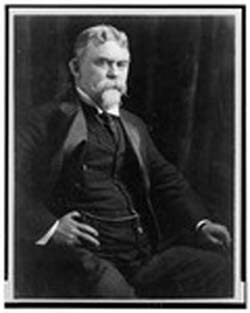
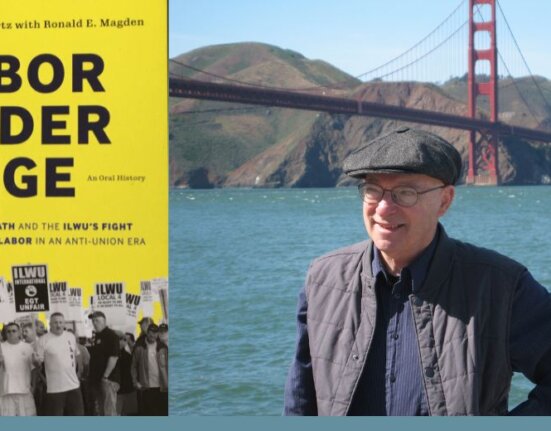
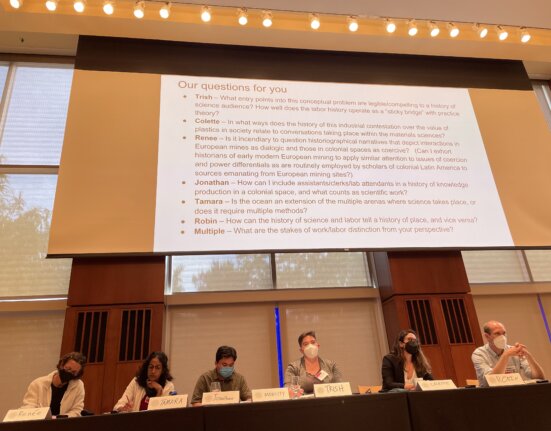
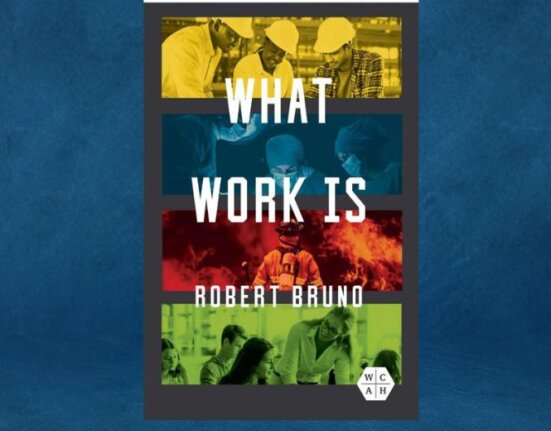
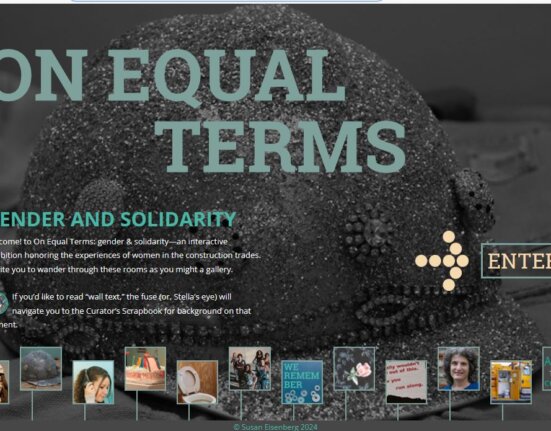
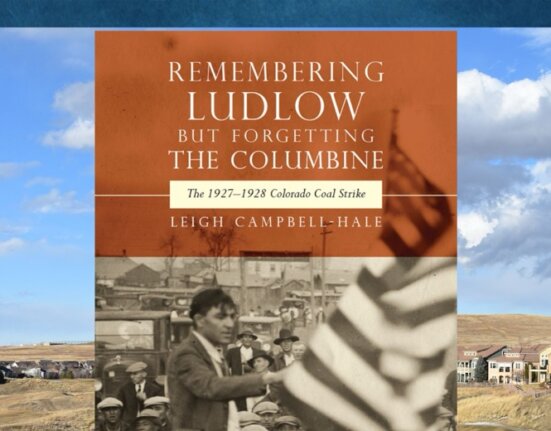
5 Comments
Comments are closed.